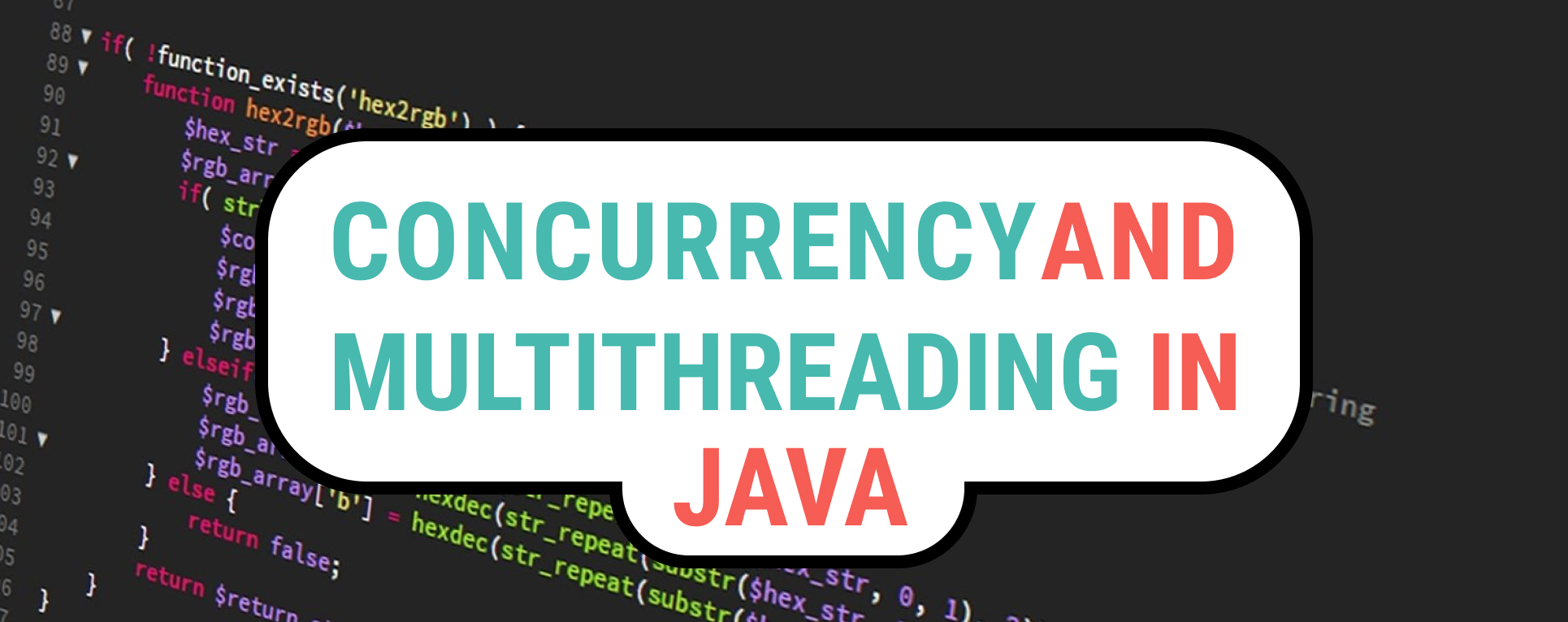-
Concurrent systems refer to computer systems or software applications that are designed to handle multiple tasks or processes simultaneously.
-
Instead of executing tasks sequentially, concurrent systems allow for overlapping or simultaneous execution of tasks, which can lead to improved performance, responsiveness, and resource utilization.
-
These systems are especially important in modern computing, where multi-core processors and distributed computing environments are common.

-
Concurrency vs. Parallelism:Concurrency and parallelism are related but distinct concepts. Concurrency is about managing multiple tasks that are potentially running in overlapping time periods, while parallelism involves executing tasks simultaneously using multiple processors or cores.Threads and Processes:In concurrent systems, tasks are often implemented as threads or processes. Threads are lightweight units of execution within a process, while processes are independent instances of a program. Both threads and processes can run concurrently.Concurrency Models:There are various concurrency models and approaches, including multi-threading, multi-processing, and event-driven programming. The choice of model depends on the specific requirements of the application.
-
-
(Multiple Readers, Multiple Writers) from (Single Reader, Single Writer):
-
This concept likely involves transforming a
Single Reader,Single Writer(SRSW) lock or data structure into one that supportsmultiple concurrentreaders andwriterswithout causing contention or requiringlocks.Wait-freemeans that every operation finishes in afinitenumber of steps regardless of contention, providing high concurrency and predictable performance. -
public class AtomicMRMW<T> implements Register<T>{ int capacity; private StampedValue<AtomicMRSW<T>>[] a_table; // array of atomic MRSW registers @SuppressWarnings("unchecked") public AtomicMRMW(int capacity, T init) { this.capacity = capacity; this.a_table = new StampedValue[this.capacity]; for (int i = 0; i < this.capacity; i++) { this.a_table[i] = new StampedValue<>(new AtomicMRSW<>(init, this.capacity)); } } public void write(T value) { String threadName = Thread.currentThread().getName(); int me = Integer.parseInt(threadName.substring(threadName.length() - 1)); StampedValue<AtomicMRSW<T>> maxStampedValue = this.a_table[0]; for (int i = 0; i < this.capacity; i++) { maxStampedValue = StampedValue.max(maxStampedValue, this.a_table[i]); } this.a_table[me] = new StampedValue<>(maxStampedValue.stamp + 1, new AtomicMRSW<>(value, this.capacity)); } public T read() { StampedValue<AtomicMRSW<T>> maxStampedValue = StampedValue.max(this.a_table); return maxStampedValue.value.read(); } }
-
-
- The Filter Lock is a
synchronizationprimitive that allowsmultiplethreads to coordinate access to acritical sectionof code. - It is a
generalizationof theBakery Lockand uses an array offlagsto indicate athread's intentto enter the critical section. Threads mustwaituntil their turn based on their flag'spositionin thearray.
- The Filter Lock is a
-
-
The Bakery Lock is a simple
synchronizationalgorithm that provides mutual exclusion formultiplethreads or processes. -
Each thread is assigned a
unique"ticket" number when it enters thecritical section, and threads must wait until their ticket number is called before they can proceed. It ensuresfairnessin resource allocation. -
import java.util.concurrent.TimeUnit; import java.util.concurrent.locks.Condition; import java.util.concurrent.locks.Lock; public class Bakery implements Lock { private volatile boolean[] flag; private volatile int[] label; private int numThreads; public Bakery (int num) { // Code Here } @Override public void lock() { // Code Here } /* SOme Code */ public int filterThread(String thread) { return Integer.parseInt(thread.substring(thread.length() - 1)); } public int max_label(int[] labels_arr) { // Code Here return maxValue + 1; } }
-
-
- (Mellor-Crummey and Scott) Queue Lock
- The MCS Queue Lock is a
scalableandefficientlock for managing access toshared resourcesin amultithreadedsystem. It's designed for use in systems with many threads. Threadsenqueuethemselves in aqueuedata structureand take turns accessing thecritical sectionbased on the order they joined the queue.
-
- Timeout Locks are
synchronizationmechanisms that allow threads toattempttoacquirea lock on a resource with a specifiedtimeout period. - If the lock cannot be
acquiredwithin the giventime frame, the thread can eithergive uportake alternativeactions. This helpspreventthreads from waiting indefinitely.
- Timeout Locks are
-
Install an
IDEthatcompilesandrunsJava codes. RecommendationVS Code -
How to setup
WSLUbuntu terminal shell and run it fromVisual Studio Code:visit: https://www.youtube.com/watch?v=fp45HpZuhS8&t=112s -
How to Install
Java JDK 17onWindows 11:https://www.youtube.com/watch?v=ykAhL1IoQUM&t=136s -
- Run WSL as Administrator
- set -ex
- NB: Update links for other JDK Versions
- export JDK_URL=http://download.oracle.com/otn-pub/java/jdk/8u131-b11/d54c1d3a095b4ff2b6607d096fa80163/jdk-8u131-linux-x64.tar.gz
- export UNLIMITED_STRENGTH_URL=http://download.oracle.com/otn-pub/java/jce/8/jce_policy-8.zip
- wget --no-cookies --header "Cookie: oraclelicense=accept-securebackup-cookie" ${JDK_URL}
- Extract the archive: tar -xzvf jdk-*.tar.gz
- Clean up the tar: rm -fr jdk-*.tar.gz
- Make the jvm dir: sudo mkdir -p /usr/lib/jvm
- Move the server jre: sudo mv jdk1.8* /usr/lib/jvm/oracle_jdk8
- Install unlimited strength policy: wget --no-cookies --header "Cookie: oraclelicense=accept-securebackup-cookie" ${UNLIMITED_STRENGTH_URL}
- unzip jce_policy-8.zip
- mv UnlimitedJCEPolicyJDK8/local_policy.jar /usr/lib/jvm/oracle_jdk8/jre/lib/security/
- mv UnlimitedJCEPolicyJDK8/US_export_policy.jar /usr/lib/jvm/oracle_jdk8/jre/lib/security/
- sudo update-alternatives --install /usr/bin/java java /usr/lib/jvm/oracle_jdk8/jre/bin/java 2000
- sudo update-alternatives --install /usr/bin/javac javac /usr/lib/jvm/oracle_jdk8/bin/javac 2000
- sudo echo "export J2SDKDIR=/usr/lib/jvm/oracle_jdk8 export J2REDIR=/usr/lib/jvm/oracle_jdk8/jre export PATH=$PATH:/usr/lib/jvm/oracle_jdk8/bin:/usr/lib/jvm/oracle_jdk8/db/bin:/usr/lib/jvm/oracle_jdk8/jre/bin export JAVA_HOME=/usr/lib/jvm/oracle_jdk8 export DERBY_HOME=/usr/lib/jvm/oracle_jdk8/db" | sudo tee -a /etc/profile.d/oraclejdk.sh
NB: A makefile Is Included to compile and run the codes on the terminal with the following commands:=
-
make clean
-
make
-
make run
default: javac *.java run: java Main clean: rm -f *.class reset clear tar: tar -cvz *.java -f Code.tar.gz untar: tar -zxvf *.tar.gz
The End, Thank You